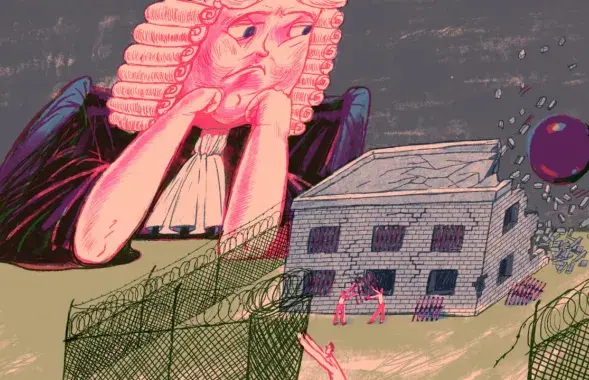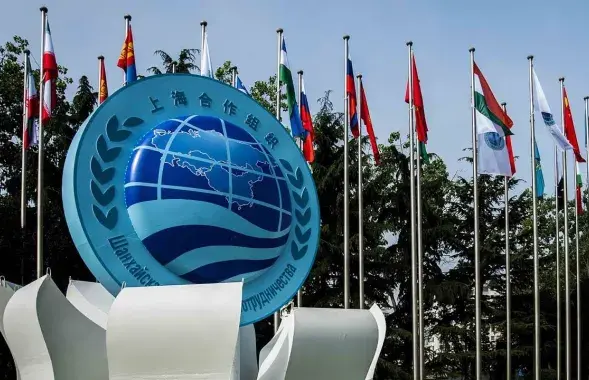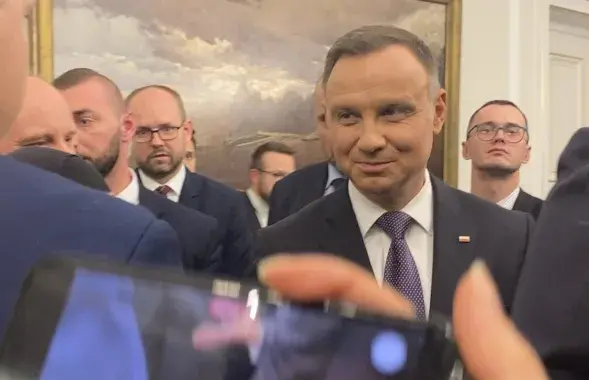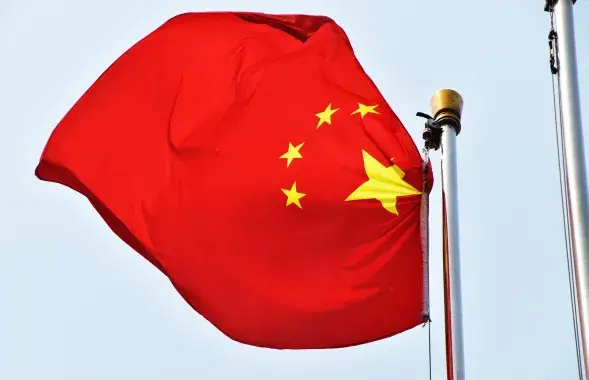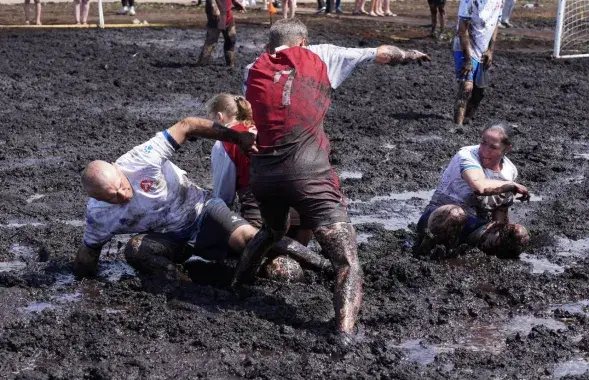How 'Russian Wikipedia' rewrites the past and present of Belarus
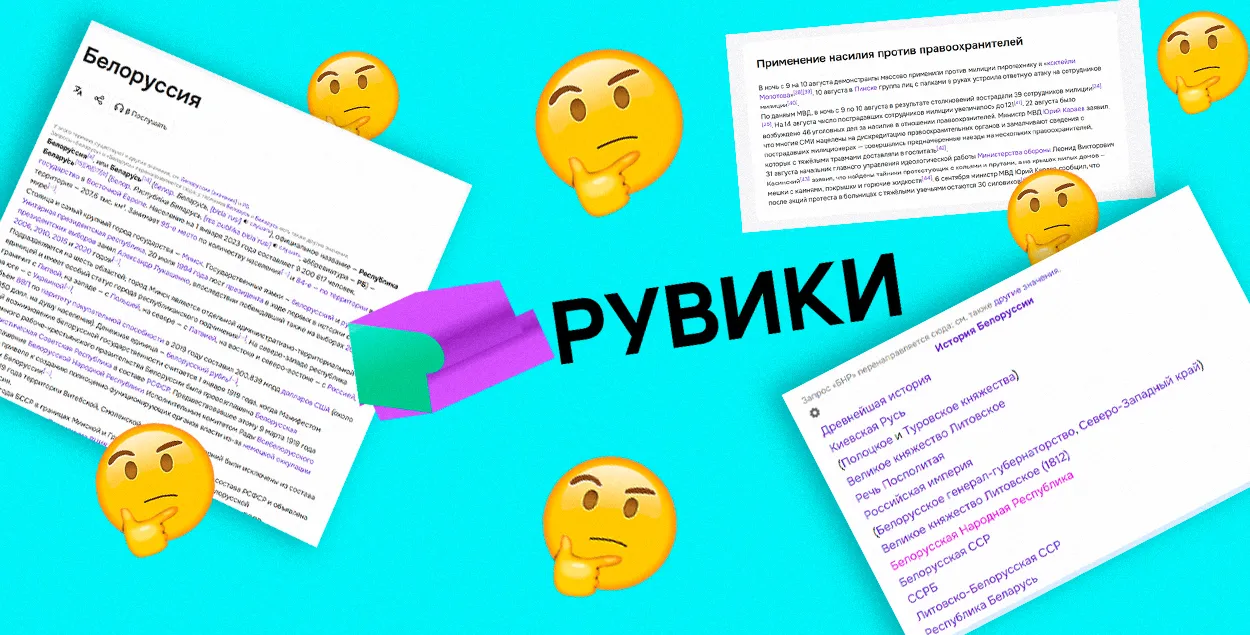
Belarusian politics through the eyes of "Big Brother" / @rubanau_collage
The Ruwiki - a Wikipedia, copied and corrected by order of the Kremlin - has been operating for more than half a year. During this time, censors have "perfected" hundreds of thousands of articles, creating a new, "correct" history for Russians.
For now, both Ruwiki and Wikipedia are working in parallel in Russia and Belarus. And the links to the latter are higher in the search than to the new project. But today or tomorrow the Kremlin may block Wikipedia and at the same time order Yandex to remove it from the search engine, which is used not only by Russians, but also by Belarusians.
Euroradio looked through several dozens of articles by Ruwiki devoted to culture, history and Belarusian political figures. Some of them are almost untouched, while others have been seriously cut compared to the originals from Wikipedia. Or removed from the Russian version of reality altogether.
An honored autocrat with 30 years of experience
Currently, the authors of Ruwiki are not very interested in the past of Belarus. Or the times of the Grand Duchy of Lithuania and the Polish-Lithuanian Commonwealth simply haven't reached their hands yet. Well, let's not tell them where there is still some information, which destroys the propaganda myth about the common history of the two "brotherly" peoples.
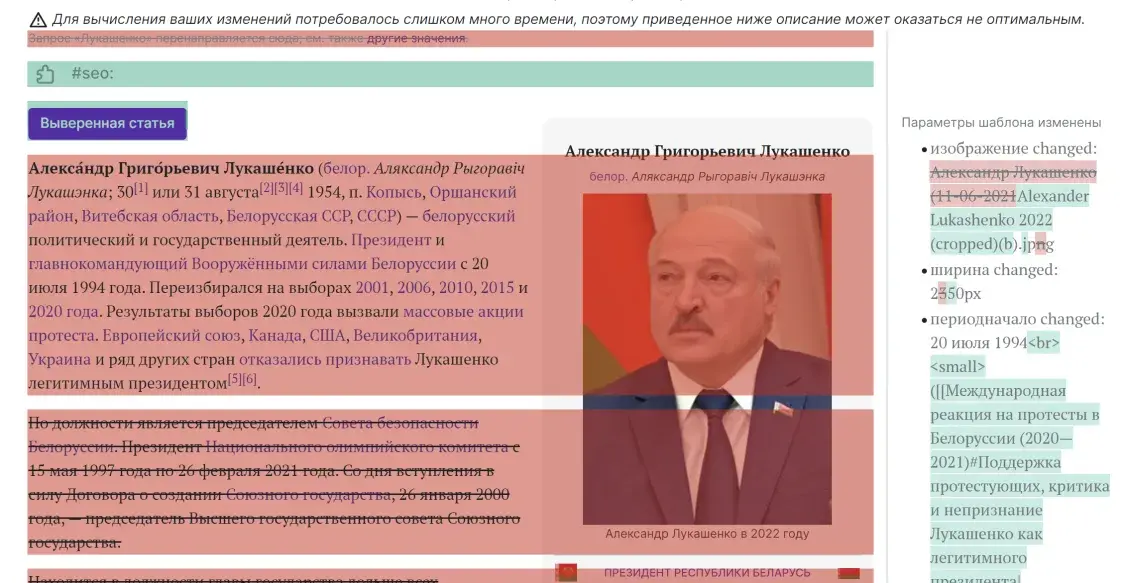
The propagandists are much more concerned about the modern Belarusian politics and Belarus' participation in the war with Ukraine.
Almost all references to the murders of his political opponents, mass repressions after the 2020 elections, and election fraud have been removed from the article about Aliaksandr Lukashenka. Criticism, if any, occurs only once and exclusively "in the opinion of Western publications". In general, Lukashenka is presented in Ruwiki as an honored politician who has done a lot of useful things for Russian-Belarusian relations: he built the Union State, negotiated with the head of PMC Wagner Yevgeny Prigozhin to stop the march on Moscow.
But the censors have not yet reached the Ruwiki article about the Atom detachment created by ByPol in Ukraine. There is also information about the now defunct detachment "Pahonya" and tactical group "Belarus".
The article on PMC Wagner does not contain information that the mercenaries after the failed mutiny of Prigozhin moved to Belarus and now train the Belarusian military there.
Encyclopedia of "truth"
Ruwiki users immediately noticed that articles about Ukraine and Russia's war with it, sex and gender, foreign policy, and much more had been significantly revised. At the same time, it has recently become much more difficult to track the edits. The engine used by Ruwiki no longer makes it possible to compare versions saved at different times.
Import substitution of information
Can Ruwiki significantly harm the Belarusian society, which draws information from the Internet? Or will it have the same effect as all the other import substitution, and will Belarusians continue to go to Western and independent Belarusian sites for quality information? Media expert and propaganda researcher Iryna Sidorskaya spoke with Euroradio about it.
"I wouldn't exaggerate the risk yet. There is no reliable information that the Internet in Belarus will become "sovereign" or at least will be restricted according to Russia's version. There is no such thing yet," she says. "It is clear that the blocking will have an impact, but it will be more of a casual encounter with such alternative information".
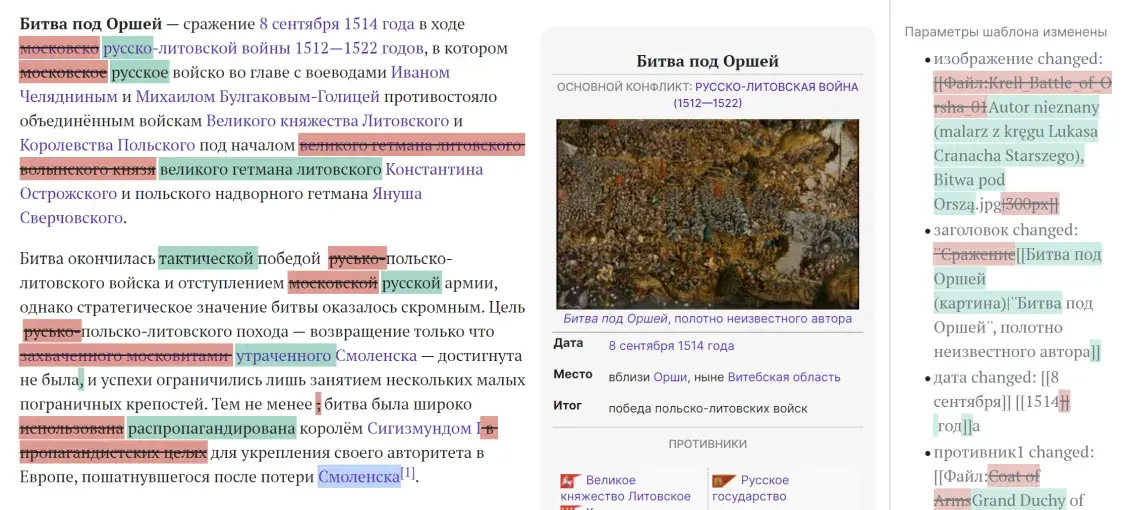
The expert believes that it is important for the Belarusian audience, primarily schoolchildren and students, to know that Ruwiki has nothing in common with the spirit and approach to covering information of the regular Wikipedia.
"After all, there are different approaches and beliefs there to explain events and phenomena, transparency, the collective nature of creation. This is fundamentally at odds with the Russian project, which, although it is filed "under scientific peer review," but in fact there is very little scientific there.
It is clearly an ideological and propaganda resource. Everything there is done exactly from Russia's point of view. And today's Russian approach is positioned as the only correct, the only scientific and the only one that has the right to exist".
Iryna Sidorskaya is sure that if Ruwiki will influence anyone, it will be primarily the Russian audience.




